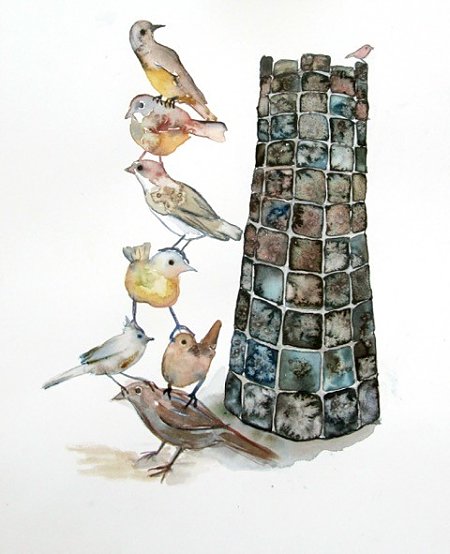
That Arab Spring
Last Tuesday there were two of them; today there are three with room for a fourth, a table in the shade at the end of the balcony. With coffee and donuts, they are puffing their cigars, the white smoke knotting above their heads like a tiny cloud. They are more interested in puffing, the smoke tumbling from their mouths, than in talking, and even then it is a talk full of monosyllables, grunting, nodding, gazing into the middle distance, watching their cigar smoke twist and turn. Squinting is a good idea, too.
It’s Tuesday morning, my three hours out of the house, and I’ve gone to the coffee shop next to the court house. It has a second-storey balcony, perfect for looking down on Main Street, the Blue Belle Café, the Round Tent Store, the Fairchild Building, and if I lean as far right as I can go, stretching over the wooden railing, I can see a slice of what used to be the Empire Theatre. A week ago, my first Tuesday out, I walked that way, toward the Theatre that they have made into an antique shop. That’s what the sign says, Antiques. When I stepped in to take a look, I saw shelves of things I had grown up with: Howdy Doody lunch boxes, rollerskates, a Fanner 50, a box of Life magazines, a Gene Autry belt buckle with matching cowboy boots. A young woman with silvery nose piercings and something like a rosy tattoo on her neck stepped out of the backroom, inquiring if everything was “Okay,” and did I need any help. I answered yes and no. Her duty all done, she disappeared back where she came. Hands in pockets, I walked down the aisle, inspecting bits and pieces of me fifty years ago. I had never thought of antiques as being that young, of me as being that old. When I left, she suddenly re-appeared, watching me closely through the window, making doubly sure I had not taken anything.
Now, tiny brown birds flit here and there, walking on the railing, sometimes hopping under the chairs and tables looking for food, sometimes not, just visiting, strolling—bird’s day out. When I drop them crumbs of toast, like a kind of magic, other, bigger birds suddenly swoop down—a tiny whirlwind of feathers and balcony dust. And all the while, at the other end of the balcony, the murmur continues, of men squinting to examine the glowing tips of their cigars, of smoke gently slipping over the railing, disappearing into the stop-and-go of Main Street traffic.
If they need me they will call. That’s what I told them before I stepped into her car, the one she won’t be needing ever again. “Call if you need me.” But, too late, they had already motioned good bye, shutting the front door. “Take your time.” Still, my cellphone lies black and pistol-like on the tabletop—just in case. Of course I don’t expect them to call because when I left she was awake and watching the news, asking anybody who would listen, “What time is it? Does Lynn come today? Did I eat breakfast yet? Is there still murder in Cairo?”
There isn’t much more to my two hours on Tuesday besides cigar smokers, birds, watching Main Street, and sipping coffee that is almost never hot enough. In the end, my two hours almost up, I scoop up the cellphone and leave, the tiny birds bouncing to the other end of the balcony.
*
Just like in the movies, it started with a phone call. And because my sister never calls, once I recognized her voice I knew what was coming.
“She’s made a decision.”
“Again?”
“Yes.”
“And?”
“And, she says she through with dialysis. Says it hurts. Says enough is enough.”
“She’s said that before. What? Two, three weeks ago?”
“This time she means it.”
“I see. And she knows what that means? This no more dialysis?”
“She says she does.”
“She’s said that before, too.”
